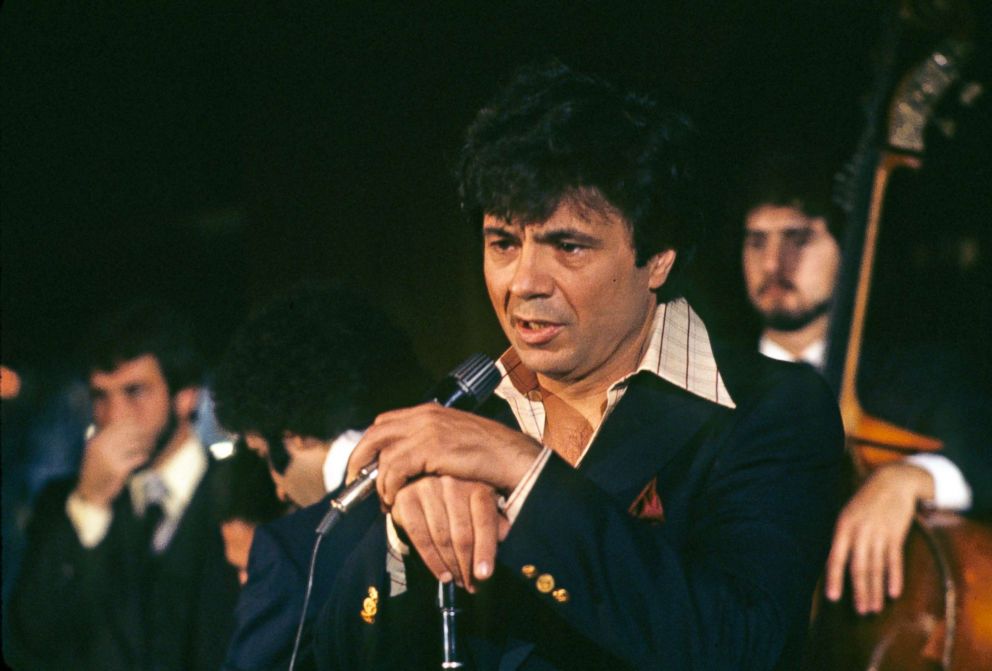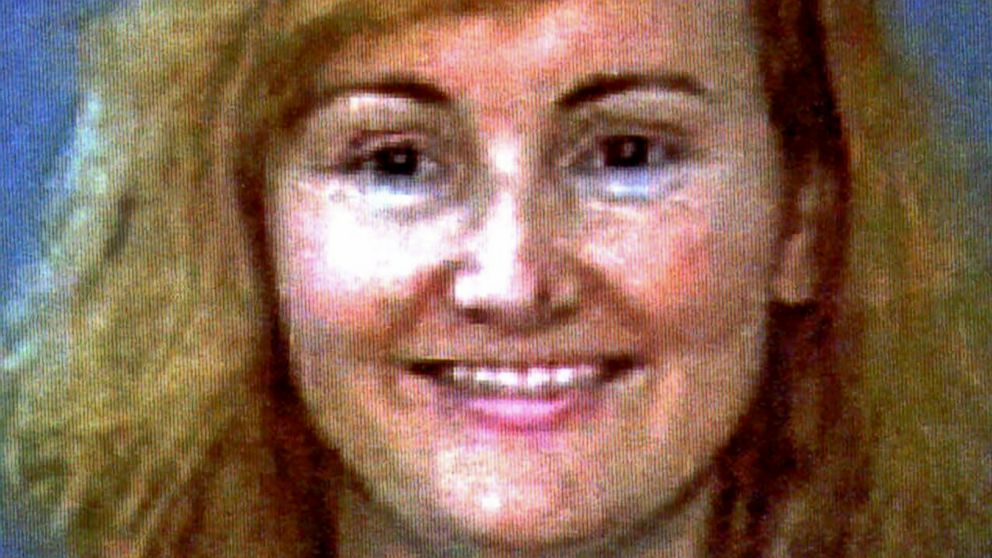Bonny Lee Bakley had a remarkable story that played a big role at her husband Robert Blake's murder trial
Bonny Lee Bakley's violent death was at the center of one of Hollywood's most publicized trials of the early 2000s because of her short-lived marriage to actor Robert Blake.
Bakley had a remarkable story that played deeply into Blake's criminal and civil trials in connection to her death: She learned at an early age she could earn money by figuring out what men wanted, and eventually, she learned how to become close to celebrities.
“Bonny wanted to be famous or be married to somebody who was famous,” Gerry Schwartzbach, Robert Blake’s criminal defense attorney, told ABC News.
By the time Blake met Bakley, he already had an extensive career in Hollywood for his TV and film roles, starting out as a child actor. He later became a household name playing the starring role in the '70s detective TV show "Baretta."
Bakley was his second wife, but the couple hadn't been married a year when she was killed in 2001. At the time, many people believed Blake was responsible for her death.
But in the wake of her murder, details about Bakley's past have raised the question of whether the killer could have been someone else intent on seeking revenge.

Bakley tried achieving fame through song and dance, said Sandy Kenyon, entertainment reporter for ABC News station WABC-TV. "At one point, she went into the studio and made a record," he said.
“Recording a song, Bonny couldn't carry a tune in a bucket. But, yet, she did it. And she would laugh at herself,” Robert Stefanow, Bonny’s friend, told ABC News.
While Bakley did not find success in show business, she was highly skilled in the art of the conning men, according to ABC News contributor and People magazine's former managing editor Larry Hackett.
"She decided to put ads in swinger magazines,” Hackett told ABC News. “She would use different names and different professions and come up with a variety of reasons as to why she needed money.”
In one ad, he said that Bakley posed as a woman named Julia. She said she was in nursing school and claimed she needed "money to pay for tuition," he said.
After men responded to ads like these, Bakley would then send them "sexy pictures of herself," Hackett said, "and they would fall for the bait."
Brad Pomerance, a lawyer with personal knowledge of the case who worked on the story at the time for Los Angeles radio station KPCC and Court TV, told ABC News that Bakley's strategies helped her raise herself up from modest beginnings.
Bakley had a challenging childhood growing up in rural New Jersey, where she was raised by her grandmother, according to her sister, Margerry Smith.
Their father was an alcoholic, Smith said, and Bakley "had a hard time in school. And the kids were mean to her.”
“I think Bonny, at a very, very early age, as a child, became a lost soul. And she told me that," Blake told Barbara Walters in a 2003 interview. "When she was 10 years old she was already doing stuff with men.”
Smith added that her sister had grown up near a nudist colony and that the colony regularly hosted community "clothes-on" swim events. However, when the two sisters decided to attend one of these events, Smith said they mistakenly showed up for a "clothes-off" swim.
“When she was 11, she and her sister Margerry went there only to find out that the day they'd gone was in fact the day they had to take their clothes off,” Hackett said.
Though her sister never went back, Bakley returned to bathe nude “all the time after that,” he noted.
“That’s where Bonny got her start in the taking of nude photos,” Smith said. “She was underage [and] people were taking photos of her and selling them.”
At 21, Bakley married her first cousin Paul Gawron and together they had a daughter, Holly, and a son.
In a 2015 interview with Barbara Walters, Holly Gawron said Bakley was “everything to me."
"She was my best friend," Gawron said. "She supported me in anything I wanted to do.”
Gawron also acknowledged that her mother “did do things that most people wouldn’t approve of.”
“But it wasn’t all she did," she at the time. "She was a shrewd businesswoman. She ran the business... she sold pictures of naked women, a little bit of pornography, and she’d spend time on the phone asking for plane tickets, or just whatever she wanted.”
“I thought she was great,” Gawron added. “I love her.”
Eric Dubin, the attorney representing Bakley’s family in their 2005 wrongful death civil suit against Blake, told ABC News: “Her kids loved her. She was a hell of a mom.”
“A lot of other people in her life liked being around her. It wasn't just her out grubbing and trying to hurt them,” Smith said. “She wanted to be part of their lives, and they wanted her to be part of their lives. She was a good person. She was just very business oriented.”
As she got older, "her cons become more elaborate," Hackett said. To establish different aliases, Hackett said, Bakley would steal credit cards and forge drivers licenses. She was eventually charged with fraud in Arkansas in 1998 and sentenced to three years' probation.
Bakley “had over 50 aliases," Brad Pomerance said. "She had been married countless times."
Tom Mesereau, who represented Blake during his preliminary hearing in the criminal trial for Bakley's murder, told ABC News that Bakley “would lure lonely older men into a trap where they would put her on their will, where they would put her on life insurance policies.”
But when she tried the scheme on a retired lawman, Hackett said, “he discovers that there’s case after case, man after man... who’ve been fleeced and hoodwinked by her from all over the country."
In the late '80s, she moved to Memphis because she wanted to date rock ‘n’ roll star Jerry Lee Lewis.
“Bonny Lee was very, very determined,” J.W. Whitten, tour manager for Lewis, told ABC News. “She just had her way of working her way in. She was just everywhere.”
When Bakley became pregnant, she claimed that the baby was Jerry Lee Lewis’s “love child.” She even named the baby Jeri Lee, but a DNA test later proved he wasn’t the father.
From Memphis, Bakley set her sights on Hollywood and began "stalking" star Dean Martin, according to Dennis McDougal, author of the book "Blood Cold." Martin was 78 years old at the time.
“She might have been able to get him to succumb in his dotage but he died too soon,” said McDougal.
Bakley went on to pursue Christian Brando, the troubled son of Marlon Brando.
In 1990, Christian Brando fatally shot Dag Drollet, the boyfriend of his half-sister Cheyenne Brando. He pleaded guilty to manslaughter and spent five years in prison.
Margerry Smith said her sister communicated with Brando while he was in jail.
"What she did was she sent nude photos to him, FedEx'd them to him while he was in jail. And then they met ... when he got out of jail. And that was it. That's all it took," Smith said.
But while she was seeing Christian Brando, Bakley had also started seeing Robert Blake. The two had met in a jazz club in 1999.

In June 2000, Bakley gave birth to a baby girl she named Christian Shannon Brando, claiming Christian Brando was the father. However, after a paternity test revealed the child was actually Blake's, their daughter's name was legally changed to Rose Lenore Sophia Blake.
When Blake and Bakley got married a few months later in November 2000, Robert Stefanow said, Bakley may have finally achieved her dream of marrying a celebrity.
“That was the thing in life that she really wanted, to be married to somebody who was a star and to have a child by them. It made her feel special. And she finally got that dream fulfilled,” he said.
On May 4, 2001, Bakley and Blake were having dinner at Vitello's, an Italian restaurant in Studio City, California. The two walked out together and Bakley got in their car, but then Blake told police he had to go back to the restaurant because he had left his gun inside.
When he returned to the car, Blake said he found his wife had been shot twice. The murder weapon, which was recovered in a dumpster, was an unusual vintage revolver and was not Blake's gun. In fact, authorities couldn't link the gun to Blake or anyone else.
In March 2005, Blake was acquitted of criminal charges in connection to Bakley's murder. However, a few months later, he faced a wrongful death suit from Bakley's children and a civil jury found him liable for her death. Blake was ordered to pay Bakley’s children $30 million in wrongful death damages. The award was cut in half by the appellate court and the parties then entered a confidential settlement.
It’s almost been 18 years since Bakley was murdered and Robert Blake still insists he had nothing to do with it.
“I'm 85 years old, I'm beat up all to hell and gone but I'm still here,” Blake told ABC News in an exclusive interview.
To this day, there are those who question if someone else in Bakley’s checkered past pulled the trigger.
ABC News' Allison Hope Weiner contributed to this report




